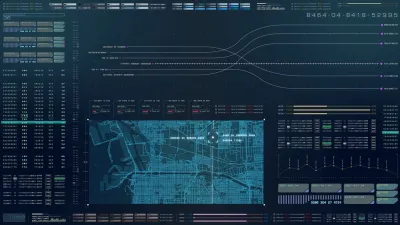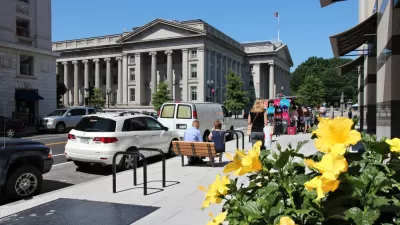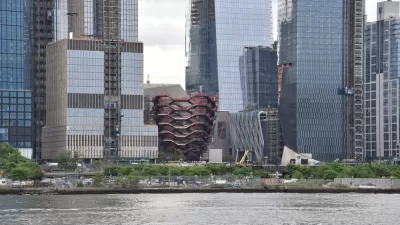Mobile broadband, government-sponsored cloud computing, smart devices - these are a few of the technologies that cities should be thinking about for the future, says the Institute for the Future in a new report.
Greg Lindsay of Fast Company looks at the Rockefeller Foundation-sponsored report, which is more than a gadget list. Called "The Future of Cities, Information, and Inclusion", it predicts a near-future struggle between haves and have-nots on the digital data divide.
From the IFTF's website: "Over the next decade, cities will continue to grow larger and more rapidly. At the same time, new technologies will unlock massive streams of data about cities and their residents. As these forces collide, they will turn every city into a unique civic laboratory-a place where technology is adapted in novel ways to meet local needs."
The technologies that matter, for better or worse, according to Fast Company:
"...mobile broadband; smart personal devices, whether they're dirt-cheap phones or tablets; government-sponsored cloud computing (modeled on the U.K.'s national "G-cloud" initiative); open-source public databases to promote grassroots innovation, and "public interfaces." Instead of Internet cafés, imagine an outdoor LED screen and hacked Kinect box allowing literally anyone to access the Net using only gestures."
FULL STORY: The Battle for Control of Smart Cities

Maui's Vacation Rental Debate Turns Ugly
Verbal attacks, misinformation campaigns and fistfights plague a high-stakes debate to convert thousands of vacation rentals into long-term housing.

Planetizen Federal Action Tracker
A weekly monitor of how Trump’s orders and actions are impacting planners and planning in America.

In Urban Planning, AI Prompting Could be the New Design Thinking
Creativity has long been key to great urban design. What if we see AI as our new creative partner?

King County Supportive Housing Program Offers Hope for Unhoused Residents
The county is taking a ‘Housing First’ approach that prioritizes getting people into housing, then offering wraparound supportive services.

Researchers Use AI to Get Clearer Picture of US Housing
Analysts are using artificial intelligence to supercharge their research by allowing them to comb through data faster. Though these AI tools can be error prone, they save time and housing researchers are optimistic about the future.

Making Shared Micromobility More Inclusive
Cities and shared mobility system operators can do more to include people with disabilities in planning and operations, per a new report.
Urban Design for Planners 1: Software Tools
This six-course series explores essential urban design concepts using open source software and equips planners with the tools they need to participate fully in the urban design process.
Planning for Universal Design
Learn the tools for implementing Universal Design in planning regulations.
planning NEXT
Appalachian Highlands Housing Partners
Mpact (founded as Rail~Volution)
City of Camden Redevelopment Agency
City of Astoria
City of Portland
City of Laramie





























